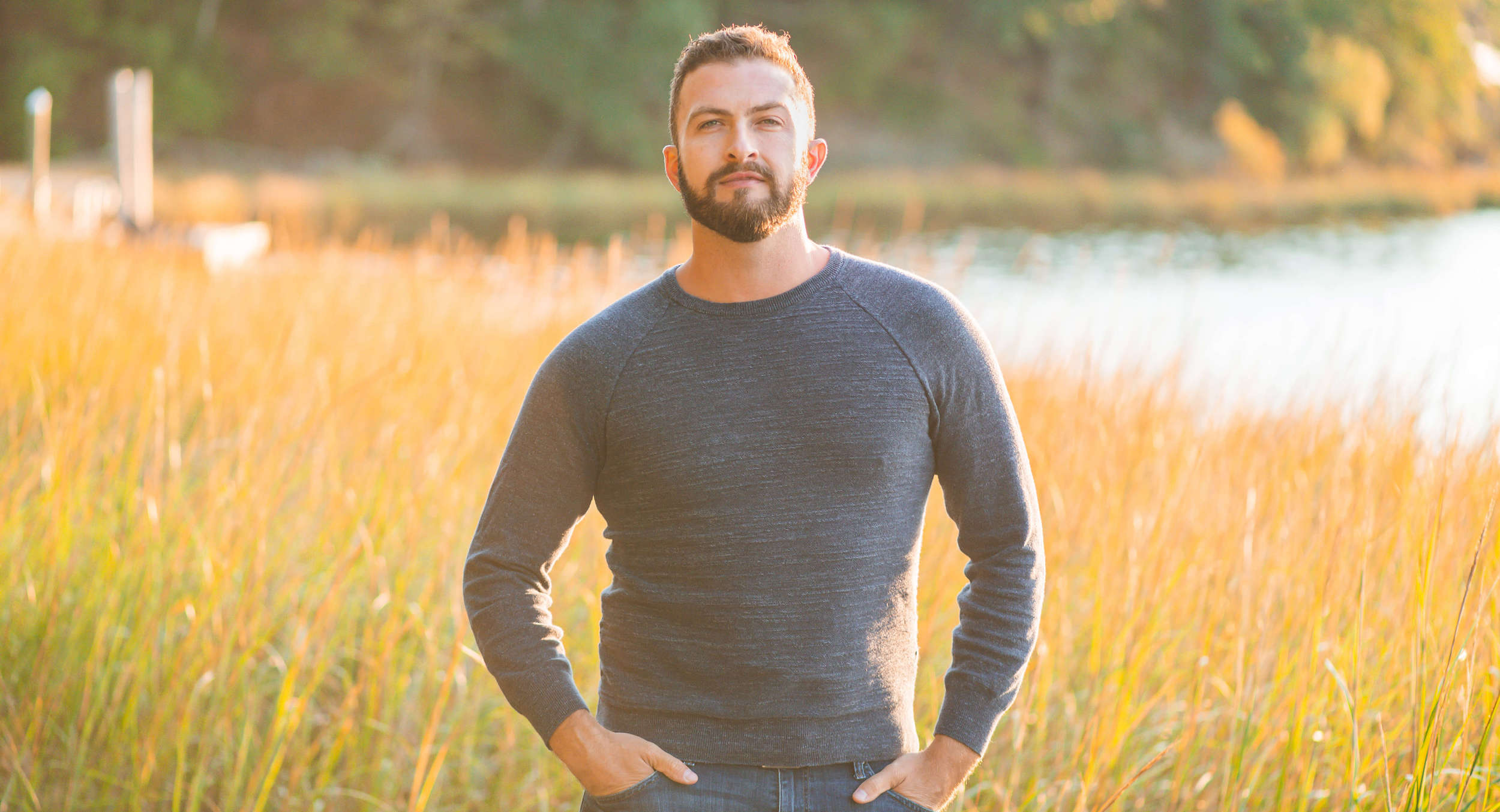After more than a year of living in socially isolated conditions, many of us are starting to emerge from post-lockdown life in increasing social circles, public gatherings, and events.
We’re not out of the woods yet with the pandemic, though, as vaccination rates lag (get yours here) and new, more contagious variants of the virus threaten new waves of lockdowns
Even still, it’s a promising time and there’s a lot to feel grateful about. But for many, it’s also a time of social anxiety, stress, and unrest as we attempt to get back to living again — including for myself!
Many people are avoiding socializing altogether, even when it’s safe to do so, because of increased social anxiety. We’re all feeling a bit crowd averse after having gotten used to social isolation from others, it seems.
And, for many people who do get together, they report feeling fear or worry about conversations getting overly tense or heavy.
According to another survey, 38% of Americans are worried about being “unable to make small talk” when it’s safe to get together. And 34% feel they’ve become “more awkward” in the past year.
That may not seem like a very high number, but 4 people out of every 10 feeling uncomfortable, awkward, stressed, or uncertain about engaging others in conversation means that we will all almost certainly have a conversation with someone who’s feeling this way as we emerge from lockdown living — that is, if we are not that uncomfortable person, ourselves!
If you’re feeling socially anxious, you’re not alone.
Today, I’d like to help you find an easier reconnecting to others — family, friends, community, even strangers — with authenticity, transparency, and levity.
What is the Root of Your Post-Pandemic, Small Talk Anxiety?
Not everyone is feeling the same way about their discomfort around post-lockdown small-talk stress. You’re unique!
Use these six journaling prompts below in a personal writing session or conversation with a trusted loved one to reflect and clarify what stakes or pressure you’re feeling… and why you desire conversation, deep down, despite the awkward tension:
1. What is it about reconnecting with people that you feel most tense or anxious about? Is it feeling unprepared about what to say, how to summarize your experience, what the other person might share, etc.? Try to get specific.
2. What is the worst-case scenario with an uncomfortable or awkward social exchange? Is the potential outcome all that bad?
3. Do you feel any amount of pressure when it comes to chit-chat, small talk, or conversation? What “stakes” do you feel? If so, why? Where does that pressure or expectation come from?
4. How might you reframe your stress or pressure around conversations in a positive light? Do you feel excited, eager, or full of anticipation to reconnect with people in a meaningful way? Have you missed connecting with strangers, family, and friends? Do you feel more alive, peaceful, content, or engaged when you’re in relationship to others?
5. What are some reasons why you still want to reach out, connect, and converse with others — despite the potential for mild discomfort? What have you missed about conversation? What curiosities, interests, and connections do you desire? What about those qualities and experiences enhances life, itself, and how you feel living yours?
6. What’s the best-case scenario in reconnecting with others through conversation, chit-chat, and small talk? What would you like to experience at the moment? What would you love to feel more of, from week to week, that you didn’t get or have during lockdown life?
BONUS: Track how you feel! Make a list of 3-10 adjectives describing how you feel after having a conversation with someone. Acknowledge any unwanted or unliked feelings, but as well, highlight the positive, feel-good, rewarding, and aspirational qualities from having done so.
Create a Story Inventory: What Was Your Lockdown Experience Like?
Next, part of your stress or anxiety may likely come from simply not knowing how to talk about your lockdown experience. Maybe you’re not feeling confident about your answers, or maybe you’re just not used to sharing personal experiences with people in general.
This set of journaling prompts below will help you clarify your understanding of your pandemic and lockdown experiences.
In turn, you’ll feel more clear, aware, and self-confident in being able to reference your answers and share what the pandemic was like for you, so you can connect more easily with others:
Story Your Pandemic Experience in 11 Journaling Prompts
1. What do I remember about first learning about or hearing about the pandemic? Where was it? What stands out in my memory?
2. How did I first encounter the start of lockdown? What happened to me and when? How did I feel as I adjusted to this new reality?
3. How do I remember my lockdown experience going, at the start? What was most challenging for me? What aspects took the longest to adjust to?
4. Did I do anything to try to “make the most” of that time? Anything silly, playful, fun, or funny — to try to lighten the mood of the stressful time? If so, what did I do?
5. How did my pandemic experience change and evolve, over time? If I was to imagine breaking down the year-plus into parts or chapters, how might I define a few of those chapters? What happened, and how did I feel during each chapter?
6. When I think back to the lockdown and pandemic experience as a whole, what would I say was the most challenging, difficult, or stressful part of it, for me?
7. What did I miss the most during the lockdown and pandemic?
8. What did I say, back then, that I “would no longer take for granted” or “couldn’t wait to get ‘back to normal’ again” someday? What did that say about what I missed the most, and probably still value?
9. Did I resolve to make any changes in my life, work, health, or relationships during this time? (Detail at least one change that you made, and how you did it.)
10. Did I come to find any silver linings to my lockdown experience? If so, what were they? What am I grateful for, despite the terrible circumstances?
11. What were some moments or experiences in my lockdown experience that felt enjoyable, refreshing, or cathartic for me? What made them feel special like that?
12. List a few moments of particular weirdness, strangeness, novelty, uniqueness, or differentness from your lockdown experience. What do I remember? What will I not soon forget?
13. Looking back on my responses to my pandemic experience, how could I sum up my experience when someone asks me about it?
Storytelling abilities take practice, and they aren’t nearly as “performative” as we may think.
Sometimes, it can go a long way just to explore our ideas and beliefs privately.
When we do, we may be less likely to stumble over our words, second-guess our answers, or feel overly self-conscious about what we’re sharing when we get around to connecting with other people.
Story Your Pandemic Experience: 8 Fill the Blank Prompts
Here are 8, fill-the-blank prompts that you can fill out and use as micro-stories or snippets of your larger, longer, lived-in experience.
Reference your longer answers above and fill the blanks in a way that makes it easy for you to get a sense of what may be fun, rewarding, or fulfilling to share in chit-chat or future conversations:
- “I can say that my pandemic experience was full of because ___________.”
- “…but it also had moments of like ___________ and ___________.”
- “One of the more memorable highlights from that time would include ___________.”
- “The part of my lockdown/pandemic experience that I found most stressful or challenging for me was ___________.”
- “One funny thing that happened was that time when ___________.”
- “I/We tried to make the most of a bad situation by ___________.”
- “I swore back then that I would no longer take ___________ for granted.”
- “Today, looking ahead, I’m really looking forward to ___________.”
Post-Lockdown Questions to Spark Non-Awkward, Meaningful Conversation
Finally, here’s a shortlist of potential conversation-starters to spark casual catch-ups without avoiding the “elephant in the room.”
Rather than backing into old, familiar, superficial questions like “How are you doing?” and “What’s new?” and “You good?”, I recommend leaning into the potential awkwardness, getting it out of the way, and then spark an actual meaningful or resonant conversation!
These convo-starters may help you feel more connected to people as you establish or re-establish relationships with them:
- “How did the lockdown affect you the most, in the beginning? What happened? What changed for you, and when?”
- “What was most challenging for you to adjust to at that time?”
- “Were there any easy aspects of adjusting to the pandemic experience for you? What did you enjoy the most, even given such a bad situation?”
- “Was there anything that you did, tried, or learned that you otherwise probably wouldn’t have, if not for the pandemic?”
- “What’s 1 thing that you swore, after the pandemic, that you wouldn’t take for granted again?”
- “How are you readjusting to post-lockdown life today? What have you been valuing, appreciating, and finding rewarding so far?
- “What are you looking forward to the most in the weeks or months ahead? Do you have any plans or things you’re eager to get back into or start anew?”
Small talk and chit-chat don’t have to be superficial or boring — and you might even feel allergic, like I do, to meaningless exchanges, especially after such a long hiatus from being able to meaningfully connect with people in person!
I hope these prompts and suggestions can help you more easily and more confidently share parts of your story, succinctly, in reconnecting with other people in post-lockdown life.
Remember: Conversation is the easiest way to connect with other people, to feel seen, and to feel closer to others — even “strangers” with whom we’re just crossing paths, by chance!
What is an easy way to get more comfortable with casual socializing, again?
For me, the answer is clear: Feeling a little bit more prepared, self-knowing, and confident about the story of your pandemic experiences — and, having a little, handy list of great questions to reference to keep your conversation flowing.
Have fun with it, and remember, you’re not alone in readjusting to a new reality of socializing after social isolation.
You’ve got this!


